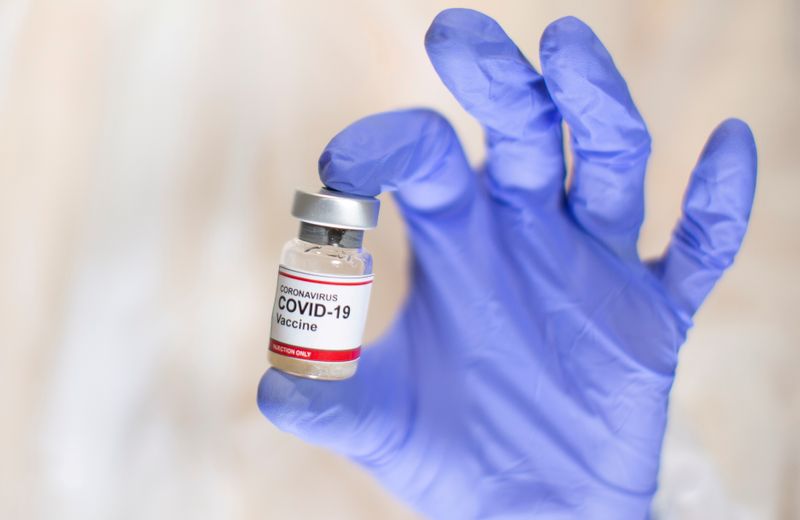By Gabriela Baczynska and Philip Blenkinsop
BRUSSELS (Reuters) - A senior EU diplomat in London was summoned to the British foreign ministry on Wednesday as the two sides traded barbs over COVID-19 vaccines, the latest in a series of disputes that bode ill for post-Brexit cooperation.
Wednesday's diplomatic spat comes after European Council President Charles Michel, in rejecting broad charges of "vaccine nationalism" levelled at the EU over its export controls, said that Britain had banned exports of COVID-19 vaccine doses.
British Prime Minister Boris Johnson used an appearance in parliament to, in his words, "correct" Michel's suggestion. Johnson said his government had "not blocked the export of any single COVID-19 vaccine or vaccine components".
"This pandemic has put us all on the same side in the battle for global health. We oppose vaccine nationalism in all its forms," he told lawmakers.
An EU diplomat said such verbal jousting was "the new normal".
"With more economic divergence and more competition ahead, pressure on our Brexit agreements will only grow," the diplomat said.
Britain and the 27-nation EU last year sealed a new partnership after tortuous divorce and trade negotiations following the 2016 Brexit referendum. In force since Jan. 1, it has failed so far to ease tensions.
In January, the EU hastily reversed a decision to introduce checks on the Irish border to prevent vaccine shipments entering Britain, after criticism from London, Dublin and Belfast.
Britain's unilateral extension seven days ago of a grace period on checks of its food imports to Northern Ireland is expected to prompt a legal challenge from the European Union this week, two Brussels diplomatic sources said.
"This was another provocation. It's not the first, and nobody expects it to be the last. The EU will keep calm and react firmly," said a second senior EU diplomat, adding that strains over Brexit arrangements for the Irish border could influence talks on regulatory cooperation in financial services, which the City of London wants.
On Wednesday, the EU sent charge d'affaires Nicole Mannion to a morning meeting with British foreign office permanent under-secretary Philip Barton, an EU official said of the latest vaccine clash.
Britain has signalled it is taking a firmer stance in its relations with the EU, pushing back against what some in the governing Conservative Party say are negative briefings against London because of the success of its vaccination programme.
After accusing Britain on Tuesday of having "an outright ban" on vaccine exports, Michel then said there were "different ways of imposing bans or restrictions on vaccines".
According to EU officials briefed by the pharmaceutical company, Britain effectively prevents exports by using a UK-first clause in its contract with AstraZeneca (NASDAQ:AZN), the only company producing COVID-19 shots in Britain.
Britain says it has taken a leading role in the Covax scheme, which aims to ensure that coronavirus vaccines are shared fairly among all nations, and officials said foreign minister Dominic Raab had written to Michel to "set the record straight".
Raab, though, drew a swift rebuke from Manfred Weber, the head of the largest political group in the European Parliament, who told him to "stop lecturing".

"Show us the export data of vaccines to Europe or anywhere else. In the last months 8 million Biontech/Pfizer vaccines were sent from Europe to the UK, how many vaccines did you send to Europe?," Weber said, tagging AstraZeneca in his comment on Twitter.
